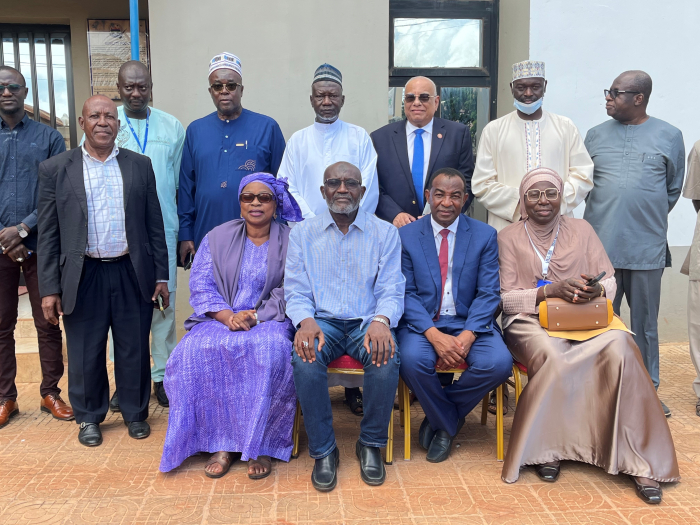
The forum, also sought to enhance participant’s understanding of governance roles and responsibilities, identify common causes of friction in university management, and equip leaders with strategies for conflict resolution and collaborative decision-making.
The session covered key topics such as the principles and best practices of good governance, measurable governance performance indicators (KPIs), mandates of governing councils and vice chancellors, and approaches to fostering a culture of shared vision and capacity building.
Professor Abubakar Musa Kundiri, Vice Chancellor of Al Nasar University, Maiduguri, who led the presentations, highlighted the governance structures and legal frameworks guiding Gambian universities.
He explained that institutions operate under the National Tertiary and Higher Education Policy and the Tertiary and Higher Education Act, with oversight provided by governing councils and senates.
While universities enjoy semi-autonomy, he maintained that they remain accountable through transparent financial reporting, quality assurance mechanisms, and alignment with national education goals.
Professor Kundiri acknowledged that the governing councils serve as the supreme policy-making bodies, charged with overall oversight, financial management, strategic direction, and accountability for academic and administrative performance.
He further explained that the vice chancellor functions as the chief executive officer, responsible for implementing council decisions, providing strategic leadership, overseeing academic and administrative affairs, ensuring financial planning, and representing the university externally.
“The role also includes supervising staff, presiding over ceremonies, and reporting regularly to the governing council and the Ministry of Higher Education.”
Professor Kundiri reminded that principles such as transparency, accountability, inclusiveness, and integrity are central to effective governance.
He equally noted that transparency builds trust in decision-making, while accountability ensures universities meet legal and performance standards in line with national development objectives.
In her welcoming address, Ndey Fatou Trawally, Deputy Permanent Secretary at the Ministry of Higher Education, Research, Science, and Technology, described the training as timely and essential.
She emphasised the importance of collaboration and knowledge-sharing among governing councils and vice chancellors, acknowledging that strengthening governance capacity is critical to achieving institutional and national education goals.
Read Other Articles In National News

NFSPMC deepens ties with media to promote public awareness on food security
Nov 14, 2025, 12:05 PM

Human Appeal International provides food aid to 3 vulnerable institutions
May 28, 2020, 1:36 PM



